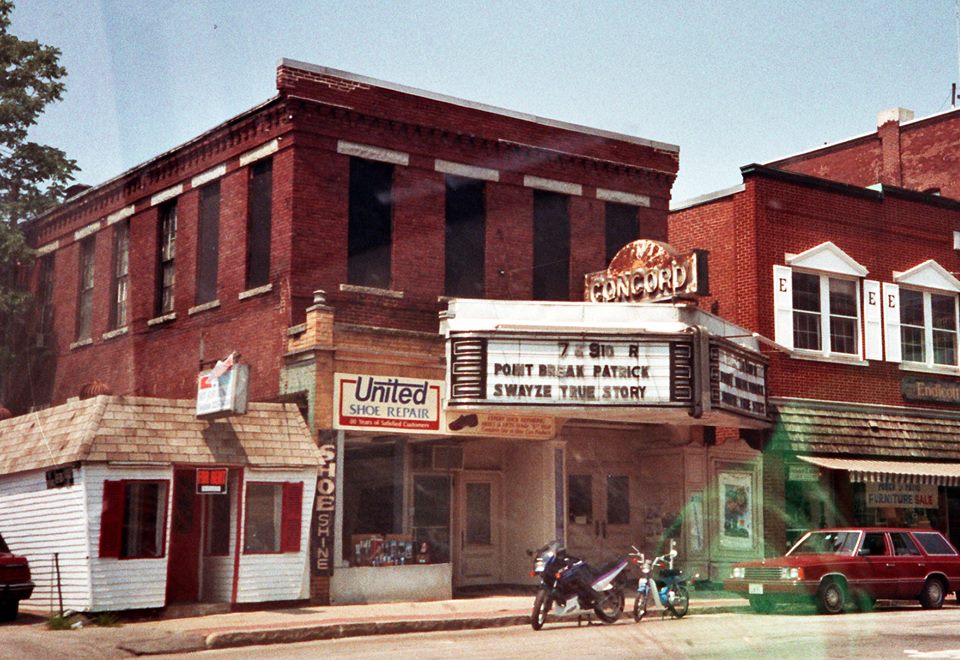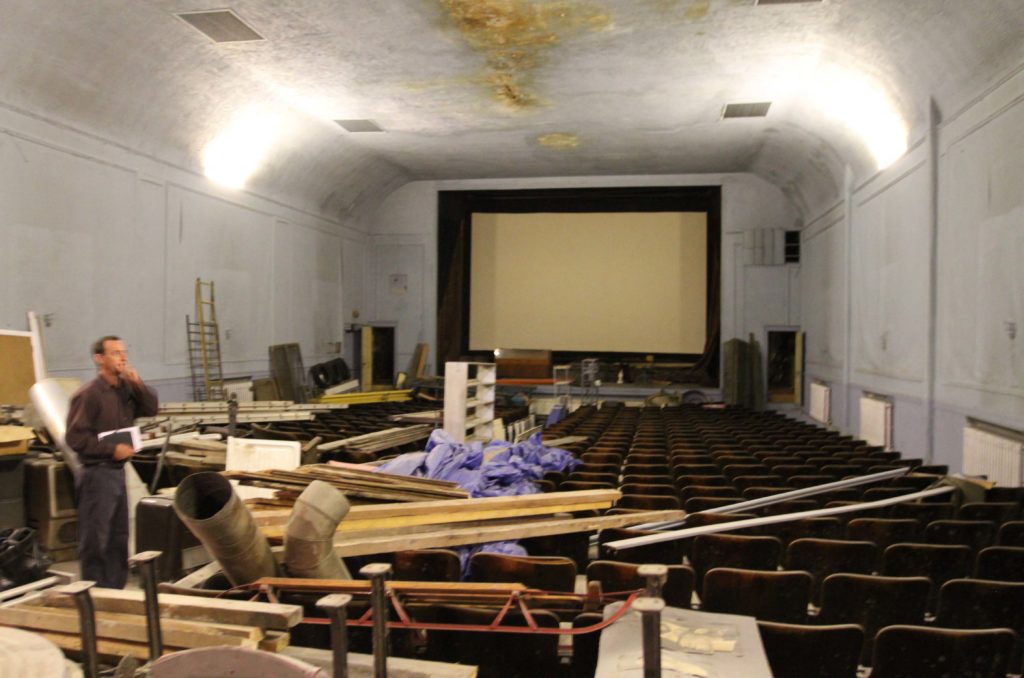Nearly a quarter century after “The End” flickered on the Concord Theatre screen for the final time, the old movie house will get a new lease on life, thanks to Concord-based developer Steve Duprey and the Capitol Center for the Arts.
After the theatre was closed in 1994 by longtime owner Theresa Cantin, it was purchased by the Leon Aznive family, owners of the Star Building on Pleasant Street, with which it shared a common wall. It remained in the Aznive family until 2017 when it came to the attention of Duprey. Although the Aznives never made any redevelopment plans for the old theater, Duprey says they should be thanked for paying property taxes and maintaining the building over many years.
The non-profit Capitol Center for the Arts, further down South Main Street, was planning an expansion and renovation, including a small 100-seat movie venue to supplement its main stage theater and Governor’s Hall event center. Duprey, who had long been active with the CCA, got the idea to redevelop the Concord Theatre and then sell it to the CCA.
Using about $2 million in tax credits under a New Hampshire law that also made possible two earlier major South Main Street redevelopment projects carried out by the Duprey Companies, the Concord Theatre will be totally renovated, creating a 275-seat movie theater, a small performance space, and kitchen. The movie theater seating will telescope into the walls, creating the performance space.
Steve Duprey says the financing and approvals for the project have already been obtained, and he expects construction to begin in June or July of 2018, with completion expected about ten months later.
The renovated space will allow the Capitol Center for the Arts to schedule an estimated 150 additional events annually. The CCA also plans to move its main ticket office down the street to the Concord Theatre’s more central location according to Duprey, who adds that naming rights to the redeveloped space have been sold to an as-yet undisclosed business.
Overall, the re-born Concord Theatre promises to add to city’s reputation as a magnet for the performing and visual arts. It’s all a part of Concord’s growing creative economy.
The Concord Theatre by Paul E. Brogan
The Concord Theatre has sat quietly and unobtrusively on South Main Street in Concord, since closing its doors in September of 1994. However, for the previous 61 years, it had been a veritable bee-hive of activity, showing thousands of movies on its silver screen and selling well over one and a half million tickets to moviegoers.
When the Concord Theatre opened in October of 1933, it faced steep competition from two other larger movie theaters – The Capitol Theater on South Main Street and The Star Theatre on Pleasant Street. They were part of the powerful Maine-New Hampshire Theaters Company, owned by Joseph P. Kennedy, father of the future President of the United States.
Kennedy didn’t hesitate in telling Theresa Cantin, co-owner of the Concord, that it was fine for women to sell tickets or work in the concession stand, but they didn’t belong at the helm – owning a theater. His “advice” didn’t deter Theresa, who bought out her business partner in 1947 and owned and operated the theater herself for the next 47 years. In fact no other woman ever owned a first-run, independent movie theater for the number of years that Theresa Cantin did.
The Concord Theatre was an important part of the local community and Theresa treated each and every customer with the same degree of concern that your experience at the movies be as satisfying as possible. Whether you were a surgeon or worked at the five and dime, your opinion had value once you walked through the doors of the Concord Theatre and purchased your ticket.
During its years as a film emporium, the Concord showed just about every type of film. There were Academy Award winning blockbusters, foreign films with subtitles, westerns, serials, and even a few titles that would go on to become “camp classics”. One in particular, “Valley of the Dolls” holds the record for the most tickets sold during its engagement. Just over 15,000 tickets were sold when this film played in the early months of 1968 at a time when Concord’s population was under 30,000.
The arrival of television in the early 50’s, the heyday of the drive-ins, the arrival of the multiplex cinemas – The Concord Theatre survived all of these, continuing to flourish into the 1990’s. During its last year, award-winning successes like “The Crying Game” and “The Piano” played to large and appreciative crowds. What it could not survive, however, was the passage of time for its owner.
When the theater opened its doors in 1933, Theresa Cantin was 19 old. When she finally decided it was time to close the doors, she was only weeks short of her 81st birthday. She had spent her life providing the best entertainment she could book for her audiences. She once noted when asked why she never took a vacation, “Because I’ve seen the whole world up there on the screen.” So did the generation of audience members fortunate enough to experience The Concord Theatre.
Paul E. Brogan is the author of a forthcoming book, “The Concord Theatre and Theresa Cantin – A Love Affair with the Movies – 1933 – 1994”, scheduled to be released in 2018.



